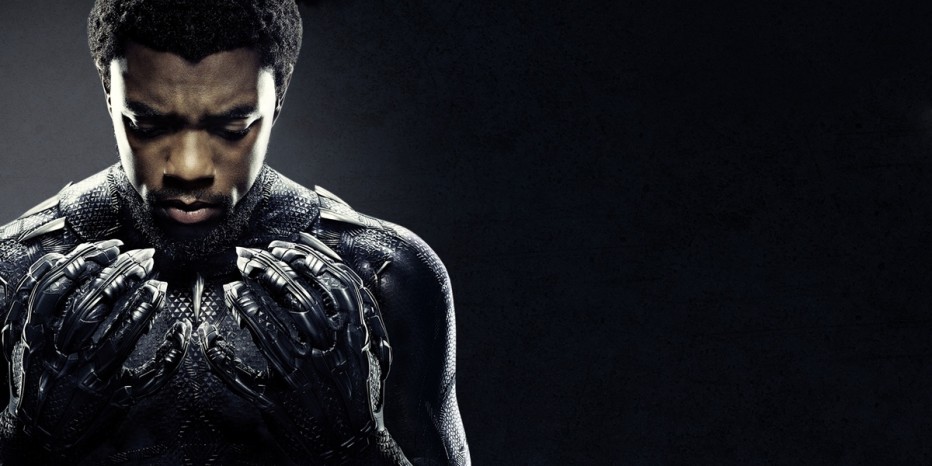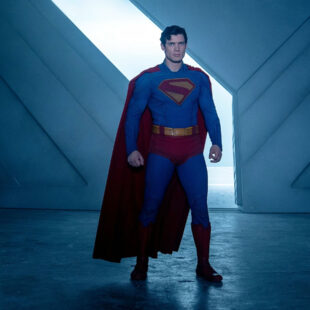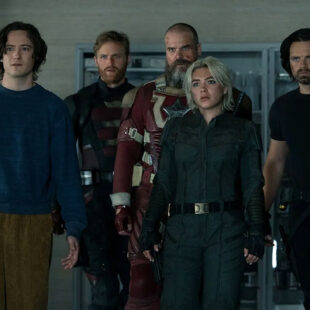Black Panther
Black Panther is unlike almost all the Marvel Cinematic Universe movies that have come before it. Director/writer Ryan Coogler (Creed) and co-writer Joe Robert Cole (American Crime Story) have found just the right sweet spot to tell a story that is deeply Afro-centric and affirmatively political in its themes and concerns, while dressing it in some of the familiar Marvel superhero pyrotechnics and adding a dash of James Bond espionage thriller. In other words, they’ve made a movie that speaks to a segment of the populace who have long awaited a mainstream film that addresses them directly, yet in no way does Black Panther alienate anyone else–this is still a comic book adventure for everyone.
That doesn’t mean it’s perfect, but it is the boldest film in the MCU, I do believe that the initial Twitter responses hailing it as a “masterpiece” go way overboard. Coogler is still growing as a filmmaker and Black Panther exhibits some of those growing pains. But it also shows just how much command and confidence he does have at the helm of his third and biggest feature to date, and he’s helped himself by assembling one of the finest acting lineups ever recruited for a Marvel movie–or any genre outing, for that matter.
It all starts with T’Challa, of course, played for the second time by Chadwick Boseman after he was introduced two years ago in Captain America: Civil War. Like Chris Evans as Cap and Robert Downey Jr. as Tony Stark (or Gal Gadot as Wonder Woman across the street at DC), Boseman already inhabits the role fully, finding the right mix of inner strength, physical prowess, and regality. This time, he is surrounded not by warring superheroes but his own people, including his sister Shuri (Letitia Wright), his mother Ramonda (Angela Bassett), Wakandan spy Nakia (Lupita Nyong’o), head of the Dora Milaje security force Okoye (Danai Gurira), adviser Zuri (Forest Whitaker), and best friend/Border Tribe security chief W’Kabi (Daniel Kaluuya).
The cast up and down is superb, but the most remarkable thing about Black Panther is that this film is about more than the first black superhero. This movie is about the women. Gurira, Nyong’o and Bassett do excellent work here. The breakout, however, is Wright (from the “Black Museum” episode of Black Mirror), whose Shuri is a fierce warrior in her own right as well as T’Challa’s playful little sister who also happens to be a Q-like technological genius. Gadot’s Diana was and is a huge step forward for female representation in this genre; now Black Panther has four powerful women in lead roles in a Marvel Studios film, each of them with agency, an arc and a pro-active role to play in the storyline.
That storyline itself is fairly straightforward and picks up almost immediately after the events of Civil War. T’Challa returns to Wakanda to be anointed as king in the wake of his father’s death, receiving his title in a ritual that also involves a challenge from M’Baku (Winston Duke), head of the Jabari mountain tribe. Yet a greater challenge greets the young king: Wakanda’s old enemy and vibranium thief Ulysses Klaue (Andy Serkis) has resurfaced, leading T’Challa, Okoye, and Nakia to hunt him down. But their search ultimately puts T’Challa, and Wakanda itself, on a collision course with a greater enemy, the enigmatic and ruthless Eric Killmonger (Michael B. Jordan).
Marvel’s “villain problem” is well-documented, with only Tom Hiddleston’s Loki and a tiny group of others providing truly worthy bad guys to oppose the MCU’s stable of superheroes. That changes with Black Panther’s Killmonger: Jordan, a tremendous screen presence already, delivers an antagonist who is complex, multi-dimensional and even empathetic to a degree. His plans regarding T’Challa and Wakanda make sense from his point of view, and there is an underpinning to the character and his motivations that tie into the larger themes of the movie overall (a nod as well to Serkis making his second MCU appearance as Klaue and relishing the smuggler’s exuberantly amoral antics).
It is here that Black Panther falters somewhat: Coogler and Cole spent a lot of the film’s first half in setting up the scenario and developing the characters, awkwardly dropping in an action sequence here and there but not quite making them work within the flow of the story. The first hour moves in fits and starts as a result, dragging at times until arriving at a major turning point in the story that kicks the movie’s second half into a higher gear and keeps it running at a much more intense pace to the finish line.
It’s also in the movie’s second half that the story’s bigger themes step forward, as T’Challa faces an existential question for his nation: does Wakanda reveal itself to the world, almost certainly forcing itself to share the country’s technological wizardry with the rest of the planet (for better or worse), or does it remain isolated and secretive even while the Earth could use its help? How far does T’Challa’s responsibility toward the rest of humanity stretch? These are the issues that the hero and the film deal with, giving Black Panther real geopolitical heft and making it the most explicitly political movie to date in the MCU canon.
Coogler and his cast play all this out inside one of Marvel’s most beautifully realized films to date, with cinematographer Rachel Morrison (making history this year as the first female DP nominated for an Oscar for her work on Mudbound), production designer Hannah Beachler, and costume designer Ruth E. Carter immersing us in the colorful and dramatic world and traditions of Wakanda. The hues and imagery pop from the screen, although an overreliance on CG for larger scenes and the movie’s climactic action sequences prove to be its other major flaw: the visual FX, especially in the third act, lack the polish that a production of this size requires and are distracting. I had a similar problem with Guardians of the Galaxy Vol. 2, making me wonder if the company should rethink the FX vendors it uses.
The movie’s flaws are noticeable but hardly debilitating. Black Panther still soars, driven by a uniquely talented director with a specific vision for how to bring Marvel’s groundbreaking hero to the screen and make him, his rich universe and his surrounding characters just as relevant today as they were when the character debuted in July 1966. This is a movie about representation and power, made by filmmakers given complete authority to bring a culture to the screen free of stereotypes, clichés and stock situations. Black Panther makes the MCU, and the world, bigger just by the fact of its long-needed existence, and like the character himself, wears that mantle with dignity, grace, and pride




